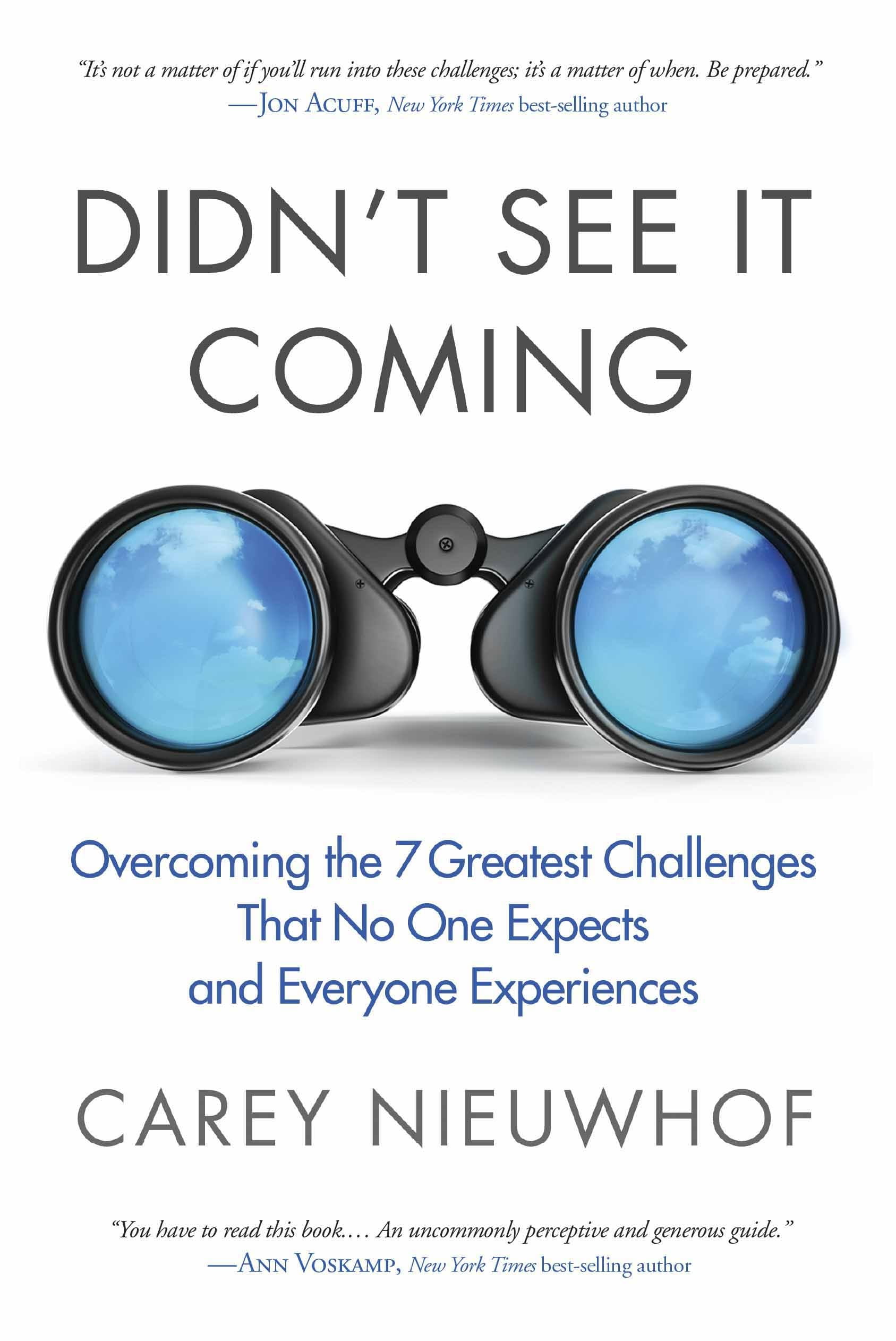How to Build Stronger Connections with the People around Us

The Real Solution to Disconnection
You might think that the cure for disconnection is just to put down your phone. And, sure, that will help. I’ve attempted periods of technological abstinence and had moderate success. It’s possible to live without technology for a few days or longer. You can learn to live without the constant need to see what’s happening outside your immediate square footage.
But ditching technology is not the real solution to our problems. It’s like living in the early twentieth century and thinking you’ll always keep your horse and carriage. As people of that generation learned, the internal combustion engine wasn’t going away anytime soon. Neither are the internet and the electronic devices in our day. The challenge is not to resist change but to learn how to thrive in the midst of it. After all, disconnection is a human problem. Technology just makes it worse.
For that reason, let’s pick up where we left off in the previous chapter, with confession as a conduit to connection. The challenge is to stop blaming others and to take responsibility for your own sins. Blame is insidious, as it will keep showing up in your mind to convince you that nothing is your fault.
Photo Courtesy: Unsplash

The Differences between Excuses and Reasons
As I’ve reflected on this over the years, I’ve come to see critical differences between four key concepts: excuses, reasons, explanations, and justifications. Excuses find their genesis in the reasons things didn’t go the way you hoped. Yes, your parents got a divorce when you were six years old. Sure, your coach never put you in the games when you deserved to play. No, it’s not fair that other kids got their education paid for while you couldn’t attend the college of your choice. But here’s the question you need to answer: When are your past circumstances going to stop defining your present and future? At a certain point, your circumstances have to stop functioning as excuses.
Reasons function in a similar way in the present tense. Yes, there are reasons your marriage is bad. There are reasons your self-esteem is low. There are reasons you struggle at work. I get that. Yet as real as those reasons are, most of the time in our thought life and prayer life, we focus on the things we can’t control. We demand our spouse to change, our kids to treat us better, or our boss to behave fairly. But when are you going to stop focusing on what you can’t control and instead start focusing on what you can control? What if for one month you prayed only about things within your control? Well, to begin with, I think you would stop making excuses.
Photo Courtesy: Unsplash

Turning Excuses into Explanations
So then, you ask, what do I do? Do I just ignore my past? Pretend the divorce never happened? Pretend my heart has never been broken? Deny the bad things that happened along the way? Absolutely not. But instead of using those experiences as excuses, try to view those pivotal moments in your life as explanations that can lead to transformation. The language of explanation is different from the language of excuse. Explanation carries with it a tone of inquiry.
Thomas Edison lived through thousands of unsuccessful attempts to produce a better light bulb, yet he never considered those failed attempts as justifications for abandoning the project; each became one more explanation that led to his world-changing breakthrough. Edison famously said, “I have not failed 10,000 times. I have not failed once. I have succeeded in proving that those 10,000 ways will not work. When I have eliminated the ways that will not work, I will find the way that will work.” Explanations are the fuel of the curious, the brave, and the driven. When you search for an explanation as to why you have a hard time trusting or opening your heart to people, you can make progress. You’re using the past as a stepping-stone into the future, not as a barricade against it.
Photo Courtesy: Thinkstock

How We Treat the Reasons for Circumstances
When you stop using your past as a justification, you’ll also begin to realize that maybe, just maybe, you have problems for which you are responsible. True, you didn’t cause your parents’ divorce, but you’ve chosen to hang on to the hurt long past its expiration date. You’ve refused to look inside, to forgive, to ask God to help you heal. When you start to confess your failures, your refusal to make excuses helps you make progress. You’re confessing your role, and you’re changing because of it.
Healthy people treat reasons as explanations, not justifications. Justifications lead to stagnation and, eventually, either to complete denial (“I’m responsible for nothing”) or to self-pity (“Woe is me; I’m stuck here forever”). Self-pity chisels into stone what discouragement whispers.
Thousands of people face the same set of circumstances every day. The biggest difference between those who make progress and those who make excuses is how they treat the reasons for the circumstances. You get to pick: you can see a reason as a justification that leads to stagnation or as an explanation that can lead to transformation. Start confessing your role. Start shedding the past. Start owning your shortcomings. Because you can make excuses or you can make progress, but you can’t make both.
Photo Courtesy: Pexels

Foster the Art of Conversation
Once you begin confessing your sins, you’ll begin to see yourself as the problem and God’s transformation of you as the solution in your relationships. It will also reduce your self-absorption and self-justification. You will begin to develop a heart for others, which should transform your conversations and begin to foster better relationships. Life-giving conversation is a back-and-forth exchange in which people take an active interest in one another. Think of it as a Ping-Pong match. If you hold the ball too long, you’re not really playing.
What happens if the conversation is not mutual, if you keep gently volleying questions and get nothing in return but long-winded answers? Be the adult in that case and continue to ask questions. A remotely healthy person will pick up on the change in dynamic over time and begin to foster mutuality in the dialogue. An unhealthy or self-absorbed person won’t.
Photo Courtesy: Thinkstock

An Exercise in Humility and Spiritual Growth
So what about the self-absorbed conversationalist? Well, you can choose your friends, but you can’t really choose your family or your coworkers. You’ll likely always have a few strained relationships in your life. However, even frustrating conversations can be exercises in both humility and spiritual growth. When you take an interest in others more than in yourself, it’s a very small form of dying to yourself, something very close to the heart of Christ. When you give your life away, something great rises.
For me, the sense that a conversation is going nowhere always carries with it an underpinning of judgment and even arrogance on my part. I just assume I’m better, smarter, or wiser or that I have greater emotional intelligence than others. Which, of course, should drive me right back to my knees in confession. After all, we’re encouraged to think of others as better than ourselves. That’s a cornerstone habit of the humble.
Phoot Courtesy: Pexels

What Happens When You Converse with People Around You?
In addition to what I’ve already outlined, several other things will happen when you elevate the level of conversation with the people around you. First, you’ll genuinely learn about how others are, which will foster a meaningful connection with them. Second, people are starved for real conversation. You’ll discover that your relationships become far more life giving. Third, you’ll soon move beyond the “How are you?” kind of conversation and start talking about deeper things. You’ll move beyond people and events and start to have life-giving conversations about ideas, possibilities, truth, dreams, hopes, and ambitions. Your level of thinking will elevate. Finally, you may even find yourself being sought after as a friend, confidant, or mentor. The skill of meaningful conversation is so rare these days that when people find it, it’s like they’ve discovered a treasure, which, of course, they have.
Photo Courtesy: Pexels

Disconnect to Get Connected
Another way to connect with other people is to disconnect from technology from time to time. Remember what I said previously: I’m a techie, and I love my gadgets. But a few years ago, I became a reluctant convert to the discipline of disconnecting. The insidiousness of having work with me wherever I walk, sit, or run deeply affects my soul and relationships. Even if I’m not working, I know I could be. And the temptation to work creates a constant urgency and obsession that’s hard to resist.
Flash back to my BlackBerry days. I love my family’s response to my first smartphone obsession: they went all out to preserve their relationships with me. While I was connecting with lots of people, I wasn’t connecting with the most important people—my family. They fought for my heart. I wish I had seen earlier what was happening, but I’m so glad they saw it.
Photo Courtesy: Unsplash

Strategies to Ensure Technology Won't Own Us
Over the last few years, I’ve made drastic changes in how we relate as a family, recognizing how technology is increasingly and dramatically affecting our personal lives. I want to make sure that any electronic device I use will enrich my life—especially my family life—and not erode it. So let me share some strategies I’ve learned to make sure technology doesn’t own me like it used to:
• My family members and I shut off everything (except background music) at dinner. No phones and no TV—just conversation and food. We try to eat at home together as a family five or six times a week. That’s a sit-down-and-chat kind of mealtime. We recently remodeled our kitchen to make it even easier to cook together and eat together. Rather than cooking for our guests all the time, we’ve recrafted the space so it’s easy to work on meals together—a shared communal experience. In an era of constant distraction and busyness, food created in a home setting can provide an almost sacramental connection.
Photo Courtesy: Thinkstock

Play Games or Do Activities Together
• I no longer use my phone in the car when I have someone with me. I (wince) used to catch up on phone calls when my wife or kids were with me. Not anymore. Being together in the car is a great chance to talk about anything and everything. I’ve never owned a vehicle with a video system for the same reason. Drive time can and should be quality time.
• We play board games—good old-fashioned board games like Monopoly, Clue, or Scrabble. No checking texts, emails, or Facebook during family game time.
• We look for activities to do together, whether that’s hiking, biking, or boating. It gets us out of our typical routine and encourages conversation.
• We invite family and friends into our home—and linger. Unhurried time with people close to us, sharing stories and experiences, enriches our lives and fosters connection.
Photo Courtesy: Thinkstock

Put the Phone on "Do Not Disturb"
• We go on vacations together. It’s amazing to me how we instinctively put our phones and other devices away when we’re on holiday. We might check the next day’s weather forecast or search the internet for activities to do, but mostly the devices are set aside. Every year we spend a week at a place where our phones don’t even work and there are no TVs. My kids call it their favorite place on earth.
• I put my phone on “do not disturb” mode all day long. This means I don’t hear a ding or feel a vibration, so my conversations, thoughts, and work are not interrupted. The reality is I can check to see if I’ve missed anything urgent when I have a free moment. If the house is really on fire, I’m sure someone will track me down and let me know it’s burning.
• I no longer sleep with any electronics in my bedroom. I used to charge my phones on my nightstand, but several years ago I moved them to my home office. The result has been much better sleep.

Founding pastor of Connexus Church in Ontario, Carey Nieuwhof is the author of Didn’t See It Coming: Overcoming the Seven Greatest Challenges That No One Expects and Everyone Experiences and host of the immensely popular Carey Nieuwhof Leadership Podcast. He speaks widely at major U.S. events. Carey and his wife, Toni, reside near Toronto and have two children. For more information, visit didntseeitcomingbook.com Photo Courtesy: Unsplash
Originally published September 03, 2018.








